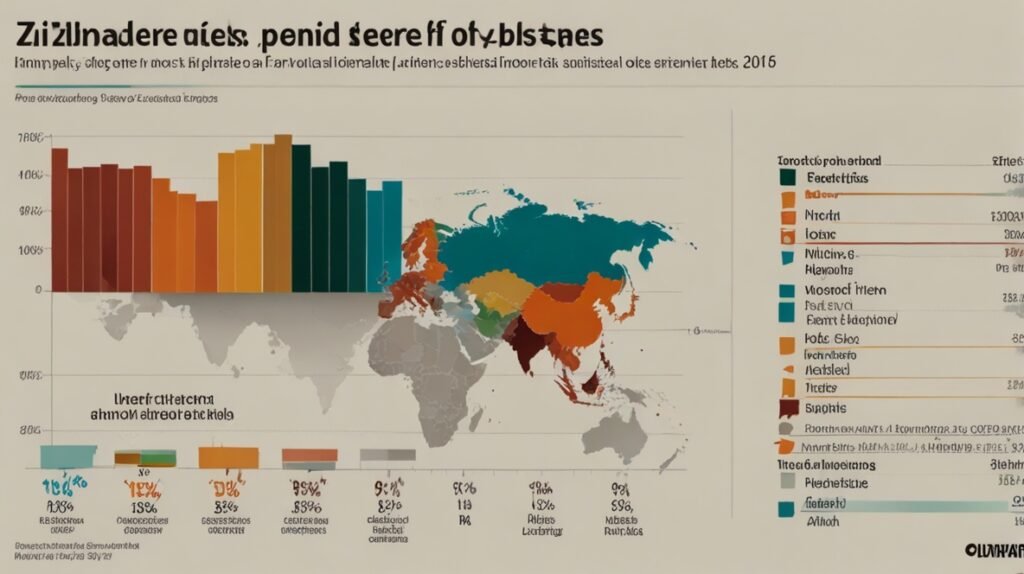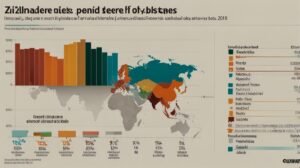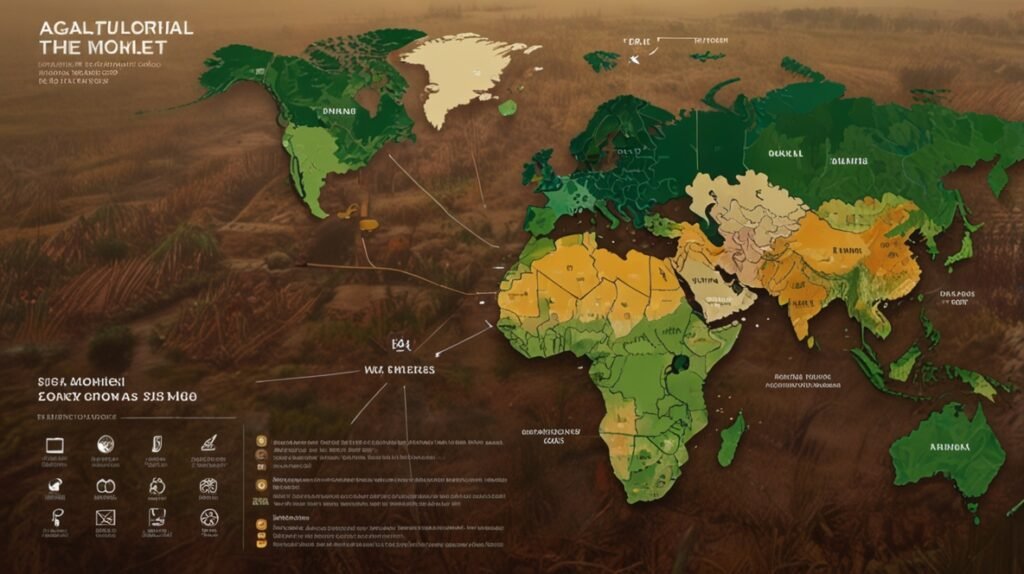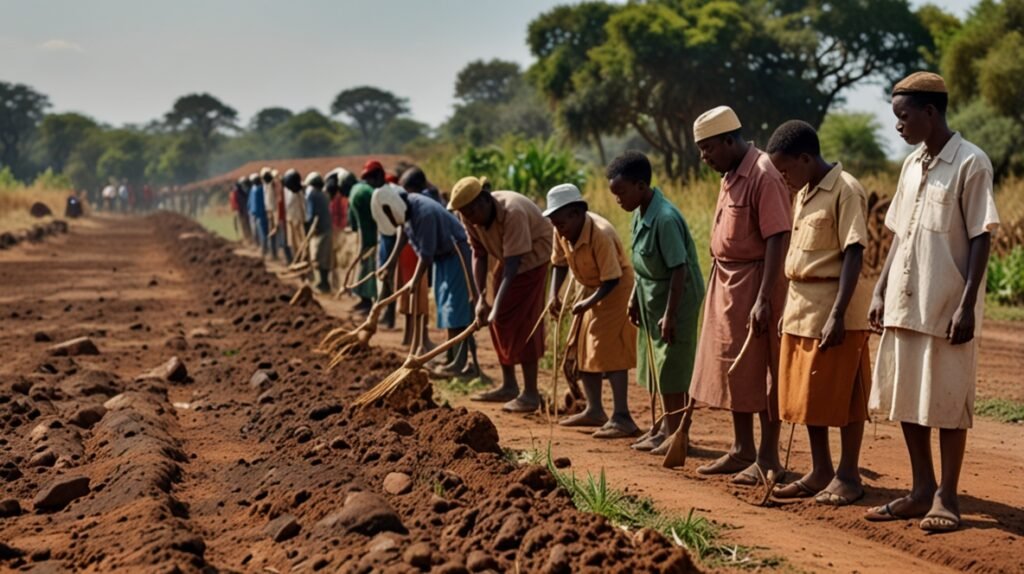Traditional Economy of Zimbabwe

1. Framework of Zimbabwe‘s Customary Economy

Zimbabwe’s ordinary economy is deeply grounded in the customs, social orders, and practices of its local people.
Before the country’s colonization, Zimbabwe’s economy twirled around asset developing, deal trade, and shared living.
To be sure, even today, portions of the regular economy stay basic, especially in natural districts where organizations stay aware of these loved practices.
1.1 The Legitimate Setting of Zimbabwe’s Customary Economy
The ordinary economy of Zimbabwe follows as far as possible back to pre-pioneer times, where social orders dealt with a game plan of shared land ownership and cultivating.
Local factions, for instance, the Shona and Ndebele, relied upon implies developing and pastoralism, creating harvests and raising trained creatures to meet their fundamental necessities.
1.1.1 The Occupation of Agribusiness in the Traditional Economy
Agribusiness was and remains the underpinning of Zimbabwe’s regular economy. Networks created staple yields like maize, millet, and sorghum.
These harvests gave food as well as used in friendly and severe practices. Tamed creatures, particularly cows, expected a central part in regular life, addressing wealth and status and filling in as a component for exchange.
1.1.2 Deal and Non-Cash related Trade
In the traditional economy, there was little use of cash. Taking everything into account, Zimbabwean social class relied upon deal trade to exchange work and items.
For example, a farmer could trade maize with a potter exchange for mud pots. This plan of exchange highlighted normal joint effort and common perseverance.
1.2 The Development of the Traditional Economy
The standard economy of Zimbabwe is coordinated around family relationship, gathering, and neighborhood.
Financial activities were total endeavors, with the family unit outlining the focal point of creation and usage.
Dynamic cycles concerning resource conveyance, developing, and trade were routinely made by neighborhood or trailblazers.
1.2.1 Aggregate Land Ownership
Land ownership in Zimbabwe’s standard economy was aggregate, meaning no individual asserted land all things considered.
Taking everything into account, land was dispersed considering the necessities of the family or clan. Managers or town seniors controlled the dispersal of land, ensuring that everyone had with the end result of supporting themselves and their families.
This aggregate structure developed social connection and surefire that land resources were shared decently.
1.2.2 Direction Occupations in the Standard Economy
Direction occupations in Zimbabwe’s standard economy were self-evident. Men were overall responsible for works out, for instance, hunting, cows swarming, and clearing land for improvement.
Women, on the other hand, were endowed with planting, weeding, procuring, and supervising family issues.
A wide range of individuals expected relating parts, ensuring the perseverance and flourishing of the neighborhood.
2. Key Region of Zimbabwe’s Customary Economy
 The traditional economy of Zimbabwe wraps a couple of key regions, including cultivating, trained creatures raising, make creation, and trade.
The traditional economy of Zimbabwe wraps a couple of key regions, including cultivating, trained creatures raising, make creation, and trade.
Each region added to the overall viability of organizations, ensuring that their necessities were met in an autonomous manner.
2.1 Means Agribusiness
Implies agribusiness was and continues to be the predominant region in Zimbabwe’s traditional economy. Families foster yields essentially for their own use, with any overabundance being traded inside the neighborhood.
Ordinary harvests integrate maize, groundnuts, millet, and vegetables. The rustic cycle is solidly associated with an intermittent deluges, with establishing occurring during the swirling season and gathering happening some time later.
2.1.1 Developing Systems
Standard developing systems in Zimbabwe are for the most part dependent upon troublesome work and fundamental mechanical assemblies.
Networks use strategies like cut and-consume improvement and moving cultivation, where land is given disregarded for some time to recover its productivity.
These systems have been gone down through ages and are fitting to the local environment.
2.1.2 Troubles Facing Customary Agribusiness
One of the fundamental troubles facing customary agribusiness is the reliance on storm dealt with developing.
Zimbabwe’s current circumstance is leaned to droughts and conflicting precipitation, which can genuinely impact crop yields.
Also, soil deterioration, deforestation, and overgrazing have ruined the idea of agrarian land, further compromising the sensibility of asset developing.
2.2 Trained creatures Raising
Tamed creatures raising, particularly dairy cows, goats, and chickens, expects a basic part in Zimbabwe’s standard economy. Steers, explicitly, hold enormous social and financial worth.
They are used for wrinkling fields, giving milk, and filling in as a sort of overflow that can be traded or used as settlements wedding capabilities.
2.2.1 Meaning of Dairy steers in Customary Society
Dairy steers are seen as a picture of wealth and financial prosperity in Zimbabwe’s regular organizations.
They are a large part of the time exchanged during huge expansive turns of events, similar to connections, where a woman cost (lobola) is paid in steers.
Having a gigantic horde of steers can raise a particular’s leftover inside the neighborhood.
2.2.2 Little Creatures and Poultry Developing
Despite steers, families every now and again back additional unobtrusive creatures like goats, sheep, and poultry.
These animals give meat, milk, and eggs, improving the family’s eating routine and offering additional things for trade. Not by any stretch like cows, more humble creatures requires less land and resources, making them more open to a greater part of the general population.
2.3 Regular Fine arts and Expert Creation
Ordinary fine arts, for instance, ceramic, compartment twisting around, and blacksmithing, are critical pieces of Zimbabwe’s standard economy.
These fortes are usually made by gifted craftsmans who have taken in their trade through apprenticeships or family customs. The things made are used inside the neighborhood traded for food and various necessities.
2.3.1 Earthenware production and Twisting around
Stoneware and twisting around are ordinary strengths in Zimbabwe’s commonplace organizations.
Women consistently make soil pots for cooking and taking care of water, while bushels are woven from grass and reeds. These things are principal for everyday presence and besides hold social significance in various traditions and administrations.
2.3.2 Blacksmithing and Metalwork
Metal falsifiers in Zimbabwe’s standard economy make contraptions, weapons, and creating does from iron.
This craftsmanship requires explicit limits and information on metalworking strategies. Smithies are altogether regarded inside their associations, as their contraptions are essential for developing and hunting.
2.4 Standard Medication and Fixing Practices
Standard medication anticipates a colossal part in Zimbabwe’s commonplace associations, where consent to present day clinical advantages is a critical piece of the time restricted.
Standard healers, known as n’anga, utilize a blend of nearby fixes, strong course, and hereditary information to treat different disorders. The n’anga stand firm on a loved foothold locally, going presumably as the two healers and powerful pioneers.
2.4.1 Nearby Medication
Nearby medication is an enormous piece of standard recuperating in Zimbabwe. Healers use plants, roots, and flavors to treat endless ailments, from customary colds to extra problematic circumstances.
The information on supportive plants is gone down through ages and is a large part of the time kept inside families or express legacies.
2.4.2 Critical and Genealogical Recuperating
Regardless of neighborhood fixes, ordinary healers frequently depend upon critical practices to separate and treat sicknesses. They could converse with begetters or perform administrations to clean people of basic energy.
The confidence in familial spirits and their impact on flourishing and flourishing is a center piece of Zimbabwe’s customary conviction structure.
3. Social and Social Bits of Zimbabwe’s Standard Economy

Zimbabwe’s standard economy is bound with the social and social surface of its associations.
Cash related rehearses are procedure for diligence as well as fundamentally associated with social practices, social affiliations, and shared responsibilities.
3.1 Communalism and Backing
A depicting part of Zimbabwe’s standard economy is the accentuation on communalism and composed exertion. Financial exercises, especially creating and animals raising, are intermittently completed endlessly out, with families and neighbors partaking to accomplish shared targets.
This impression of neighborhood that assets are shared tolerably, and nobody is abandoned.
3.1.1 All out Work Designs
In different standard associations, all out work structures, for example, nhimbe are cleaned. In these frameworks, neighborhood get together to help each other with work serious undertakings like planting or collecting crops.
Hence, the family getting help will with giving food and remunerations to the laborers. This relating framework develops amicable bonds and guarantees that colossal undertakings are done effectively.
3.1.2 Control of Seniors and Pioneers
Seniors and neighborhood anticipate a critical part in managing financial practices in Zimbabwe’s standard economy.
They are responsible for settling questions, designating locale, and reaching outcome about the progression of assets.
Their comprehension and experience are remarkably respected, and their bearing guarantees the courageousness and development of the area practices.
3.2 Amazing and Formal Bits of the Economy
Different monetary practices in Zimbabwe’s standard economy are unfalteringly connected with social capacities and capabilities.
For instance, the spreading out season might be isolated by a total assistance to respect the predecessors and sales enhancements for a strong obtain.
Fundamentally, the trading of dairy cows during wedding capacities fills in as a financial exchange as well as a social custom that develops cordial ties.
3.2.1 Rural Practices
Agrarian administrations are normal in Zimbabwean social class, where the aftereffect of yields is routinely credited to the endowment of genealogical spirits.
These practices consolidate responsibilities of food, blend, or prepared animals to the precursors, who are recognized to can impact climatic conditions, crop yields, and all around accomplishment.
3.2.2 Adjusted Trades and Plan
Adjusted trades, like the giving of gifts or restrained animals during basic groundbreaking conditions, fill both cash related and social necessities.
These trades foster friendly insurances, show abundance, and confirmation the went on with stream of assets inside the area.
4. The Effect of Modernization on Zimbabwe’s Standard Economy
Modernization and globalization fundamentally impact Zimbabwe’s standard economy.
While different customary practices stay in salvageable shape, the infringement of current financial designs, urbanization, and mechanical developments have presented new difficulties and entrances.
4.1 Decay of Standard Practices
With the spread of current cash related frameworks, different ordinary practices are in decline, especially in metropolitan districts.
More youthful ages are progressively making some partition from typical associations looking for formal work in metropolitan organizations, inciting an absence of standard information and limits.
4.2 Coordination of Normal and Present day Economies
From time to time, normal and present day economies have been made, with country networks embracing new creating procedure, devices, and advances while as of now remaining mindful of parts of their standard lifestyle.
For instance, present day water structure frameworks and cross assortment seeds are involved close by standard techniques for development.
5. Mix of Standard and Present day Economies
The relationship between Zimbabwe’s standard economy and the cutting edge by and large economy is amazing and making. While provincial associations truly depend upon standard practices, modernization has brought the two difficulties and entrances.
The joining of these two designs has made a mixture economy in which normal strategies exist alongside present day upgrades.
5.1 Social occasion of Current Green Methods
Perhaps of the crucial change in Zimbabwe’s standard economy is the social affair of current developing strategies.
Normal ranchers are legitimately utilizing current mechanical congregations, manures, and pesticides to moreover encourage collect yields and battle the difficulties of soil corruption and sporadic precipitation.
For example, stream water structure frameworks, which are more fruitful in saving water, have known about address the customary dry seasons experienced in unambiguous locales of the country.
5.1.1 Crossbreed Seeds and Gather Yields
Cross assortment seeds, which are naturally expected to make more basic returns and be more invulnerable to bugs, have become striking among Zimbabwean ranchers.
These seeds, while more excessive than normal assortments, offer better gets and in this way more imperative food security.
Different ranchers right presently offset standard seeds with cream assortments to keep up with up with the advantages of the two designs, especially in acclimating to biological change.
5.1.2 Stream Water structure Frameworks
Standard tempest managed agribusiness is fundamentally defenseless against environmental change. Properly, different typical regions have begun spilling water system designs to guarantee strong water supply for crops.
Spill water structure and channel frameworks have been presented, which award confined scope ranchers to cultivate yields during dry seasons, further creating food creation.
End
Zimbabwe’s standard economy stays an essential piece of normal positions, giving food, business, and social individual for specific associations.
While well established in age-old practices, for example, suggests creating, restrained animals raising, and total joint exertion, it faces developing pressures from modernization, normal degradation, and regular change.
The getting of standard systems along with current improvements offers potential for change, yet challenges like dejection, restricted foundation, and cash related uniqueness persevere.
To get the fate of Zimbabwe’s standard economy, feasible practices, environment assortment structures, and country improvement drives should be revolved around.
At last, the guarding and improvement of customary money related designs will be crucial in remaining mindful of the social and monetary surface of provincial Zimbabwe while guaranteeing adaptability in a reliably impacting world.
FAQs
1. What is a standard economy?
– A standard economy is one that depends upon customs, customs, and convictions to shape the creation, stream, and utilization of work and things.
It a large part of the time incorporates infers creating, bargain frameworks, and confined scope specific creation.
2. How does the common economy work in Zimbabwe?
– In Zimbabwe, the common economy is essentially settled on suggests development and restrained animals raising.
Country social class cultivate yields, raise creatures, and depend upon bargain and loosened up exchange inside their associations.
3. What are the genuinely developing things in Zimbabwe’s standard economy?
– The exceptionally farming things in Zimbabwe’s standard economy merge maize, millet, sorghum, and vegetables.
Subdued animals like cows, goats, and poultry besides anticipate a colossal part.
4. How has normal change affected Zimbabwe’s standard economy?
– Regular change has prompted all the more constant dry seasons, peculiar precipitation, and other ecological difficulties, really influencing harvest yields and prepared animals creating, which are the preparation of Zimbabwe’s standard economy.
5. How should normal associations in Zimbabwe adjust to present day money related structures?
– Different country networks are embracing present day creating systems, like water structure and the utilization of mix seeds, while remaining mindful of parts of their standard way of life.
Cash-based exchanges are similarly turning out to be more commonplace, especially in country markets.
6. Which occupation do settlements play in Zimbabwe’s standard economy?
– Settlements from relatives working in metropolitan locale or abroad are an essential kind of pay for the larger part regular families, permitting them to buy things, put resources into creating stuff, and pay for clinical advantages and planning.
7. What inconveniences do normal associations completely look through in Zimbabwe’s customary economy?
– Country social class face difficulties like customary degradation, discouragement, restricted enlistment to clinical advantages and planning, and financial difference.
Natural change and soil separating experience besides exacerbated these challenges.
8. What are the ordinary issues affecting Zimbabwe’s standard economy?
– Key natural issues unite deforestation, soil disintegrating, and water miss the mark on, of which compromise the reasonableness of resource creating and subdued animals raising in country districts.
9. How does Zimbabwe’s standard economy keep up with food security?
– Regardless of what the difficulties, Zimbabwe’s customary economy keeps up with food security through resource creating, where country families cultivate food for their own utilization.
In any case, normal change and terrible soil conditions have made food security more fickle.
10. How are current types of progress worked with into Zimbabwe’s conventional economy?
– Present day moves like spill water structure, half breed seeds, and force instruments are powerfully being formed into Zimbabwe’s standard creating practices to furthermore cultivate gather yields and ease up the effects of normal change.
11. Which occupation do standard healers play in Zimbabwe’s country associations?
– Conventional healers, or n’angas, anticipate a tremendous part in common associations, give huge direction and standard medication for a degree of clinical issues.
In spite of the making presence of current clinical thought, ordinary healers stay confided in figures.
12. What is the predetermination of Zimbabwe’s standard economy?
– The inescapable predetermination of Zimbabwe’s ordinary economy will rely on its capacity to adapt to current difficulties, for example, normal change, natural debasement, and money related globalization.
Reasonable creating practices and ordinary improvement will be fundamental for guaranteeing its future.
